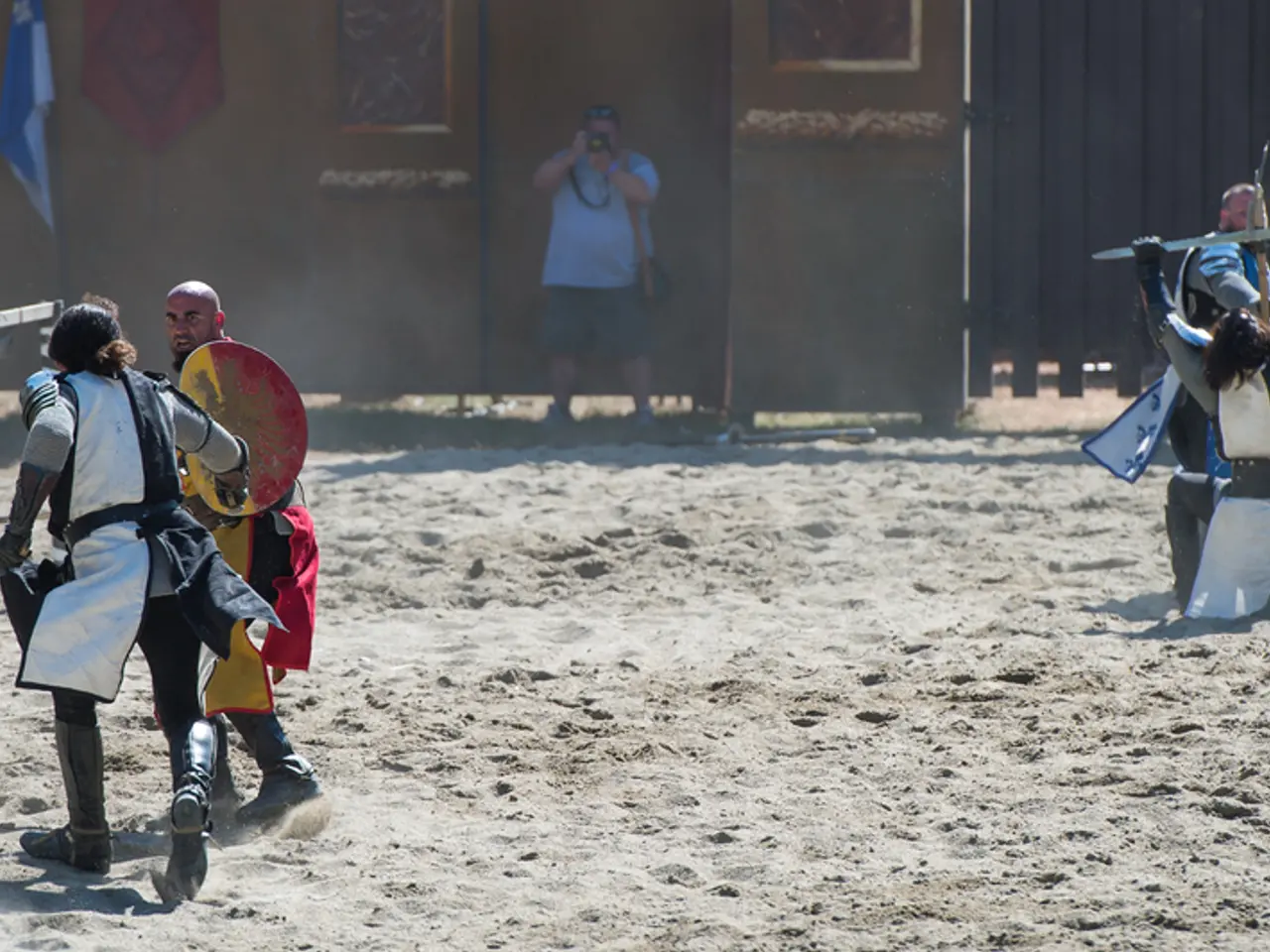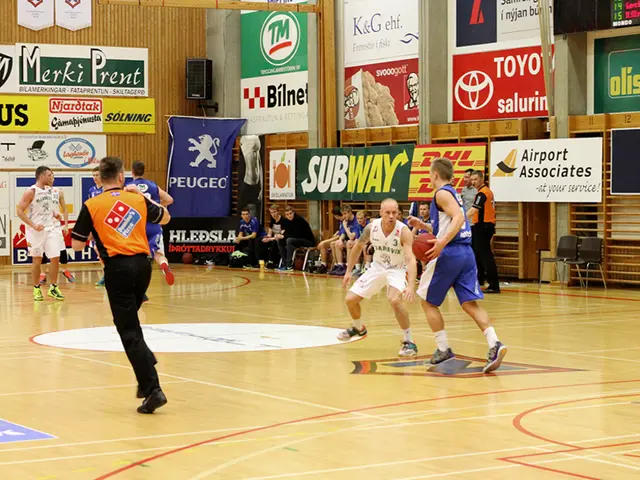Thai Army Retaliates to Cambodia's Breach of Ceasefire with Actionable Strategies
In a recent development, the Thai Army has issued a statement, condemning Cambodia for violating the ceasefire agreement and attempting to undermine mutual trust along the border. The condemnation comes after repeated incidents of clashes and accusations, despite an immediate and unconditional ceasefire declared by both countries in late July.
The goal of the ceasefire was to foster peace, reduce tensions, and promote cooperation. However, the Thai Army's statement suggests that Cambodia has failed to uphold its part of the agreement. The Thai Army stressed the importance of adhering to self-defence and international law, and implemented retaliatory measures in line with the right to self-defence.
The Thai Army's response was not aggressive but was aimed at defending the nation's sovereignty according to international law. Reports of Cambodian military actions surfaced, including disturbances and the use of heavy weaponry targeting Thai territory in specific areas such as Chong Bok, Chong An Ma, Sam Tae, Ta Kwai Temple, and Phu Makua.
The Thai Army strictly complied with the ceasefire and immediately ceased military actions along the border, as agreed. The Royal Thai Army did not act aggressively but defended the nation's sovereignty according to international law. The Thai military responded to the situation by deploying forces as per the situation.
According to the statement, Thailand adhered strictly to the ceasefire agreement and closely monitored the situation along the border. The Royal Thai Army emphasized that the Thai military's response was in line with the right to self-defence.
The current status of the Thai-Cambodia border situation remains tense but involves ongoing efforts to monitor and resolve the conflict through dialogue and observation. The Interim Observer Team (IOT), composed of military attachés from eight ASEAN countries, conducted a field visit in the Thai border provinces of Ubon Ratchathani, Si Sa Ket, and Surin. The team was briefed by the Royal Thai Armed Forces about Cambodia’s violations of the ceasefire agreement and obstruction of Thailand’s mine demining operations.
Ongoing discussions between military leaders from both Thailand and Cambodia are being held. The discussions aim to address ongoing tensions and seek resolution between the two sides. The scheduled meeting between military leaders of Thailand and Cambodia has been rescheduled to 10:00 hours.
The conflict is rooted in longstanding territorial and historical disputes centered on areas near the Preah Vihear temple and adjoining border zones. Despite the ceasefire and ongoing negotiations, mutual distrust remains significant, making the peace fragile. Thailand continues to emphasize that border disputes should be resolved through bilateral mechanisms rather than international courts, rejecting the jurisdiction of the International Court of Justice (ICJ).
In summary, after the Thai Army's condemnation of Cambodia for ceasefire violations, the border is under close observation by international and regional observers, with both sides participating in dialogue and monitoring efforts. However, tensions and accusations remain high, reflecting deep-rooted disputes and political complexities that have yet to be fully resolved.
International business and politics are heavily impacted by the ongoing conflict between Thailand and Cambodia, with war-and-conflicts along their shared border causing significant tension. General news outlets are reporting continued clashes and allegations of ceasefire violations, despite multiple attempts at negotiation and agreement. Crime-and-justice issues such as the use of heavy weaponry and border disputes are at the center of the dispute, creating a complex and fragile situation that requires continual monitoring and dialogue. International observers and regional organizations are closely following the developments, including the Interim Observer Team (IOT) of eight ASEAN countries, whose field visit and briefings aim to shed light on the situation and potentially lead to a resolution. The rescheduled meeting between military leaders of both Thailand and Cambodia highlights the ongoing efforts to address tensions and seek peace, but the deep-seated historical and territorial disputes mean that a complete and lasting resolution may be elusive.






